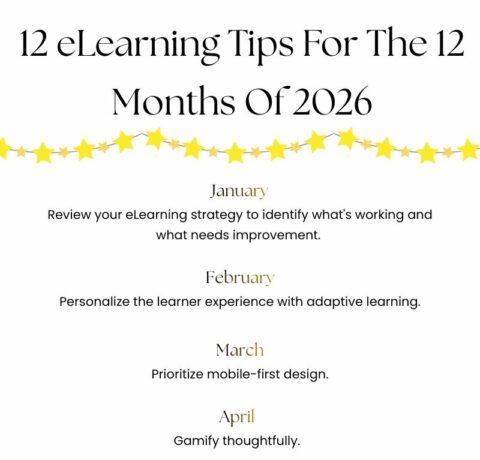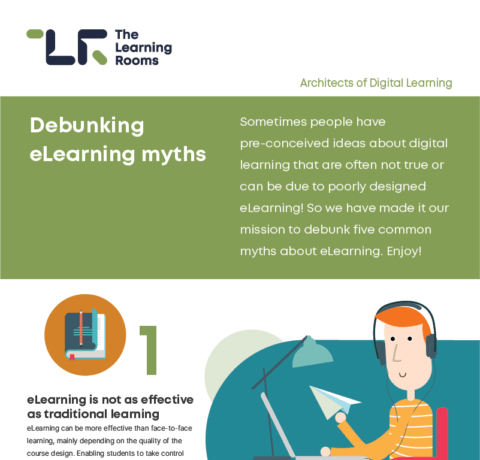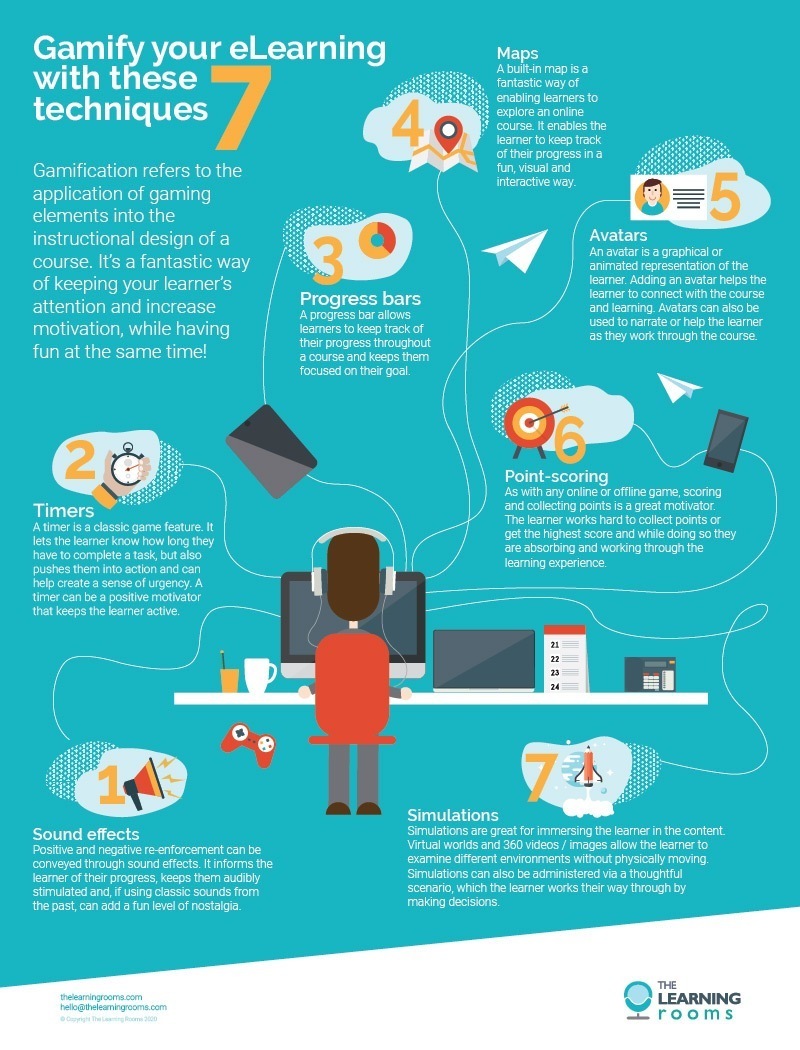Gamify Your eLearning With These 7 Techniques—Infographic
Gamification refers to the application of gaming elements into the Instructional Design of a course. It’s a fantastic way of keeping your learner’s attention and increase motivation while having fun at the same time!
1. Sound Effects
Positive and negative re-enforcement can be conveyed through sound effects. It informs the learner of their progress, keeps them audibly stimulated, and if using classic sounds from the past, can add a fun level of nostalgia.
2. Timers
A timer is a classic game feature. It lets the learner know how long they have to complete a task but also pushes them into action and can help create a sense of urgency. A timer can be a positive motivator that keeps the learner active.
3. Progress Bars
A progress bar allows learners to keep track of their progress throughout a course and keeps them focused on their goal.
4. Maps
A built-in map is a fantastic way of enabling learners to explore an online course. It enables the learner to keep track of their progress in a fun, visual, and interactive way.
5. Avatars
An avatar is a graphical or animated representation of the learner. Adding an avatar helps the learner connect with the course and learning. Avatars can also be used to narrate or help the learner as they work through the course.
6. Point-Scoring
As with any online or offline game, scoring and collecting points is a great motivator. The learner works hard to collect points or get the highest score and while doing so they are absorbing and working through the learning experience.
7. Simulations
Simulations are great for immersing the learner in the content. Virtual worlds and 360-degree videos/images allow the learner to examine different environments without physically moving. Simulations can also be administered via a thoughtful scenario, in which the learner works their way through by making decisions.







You can adjust your cookie preferences here.